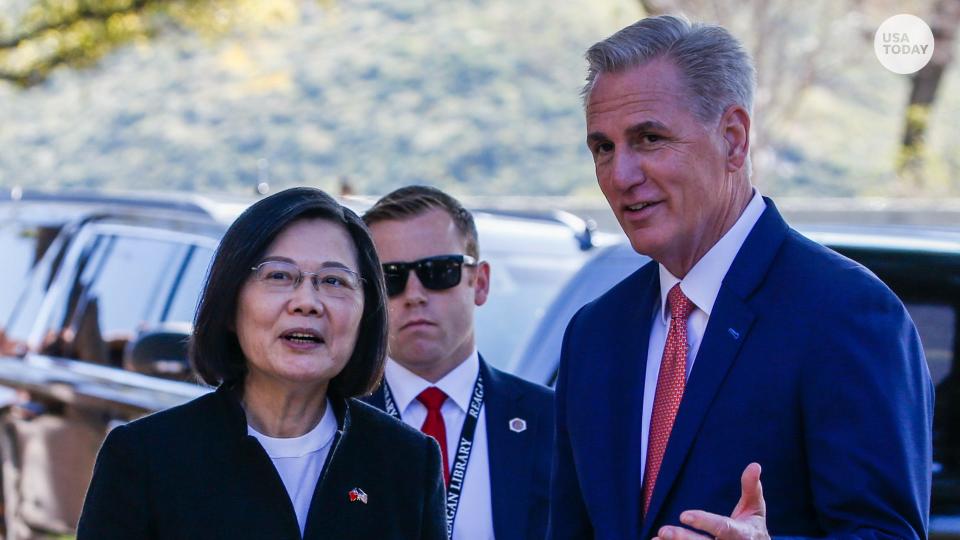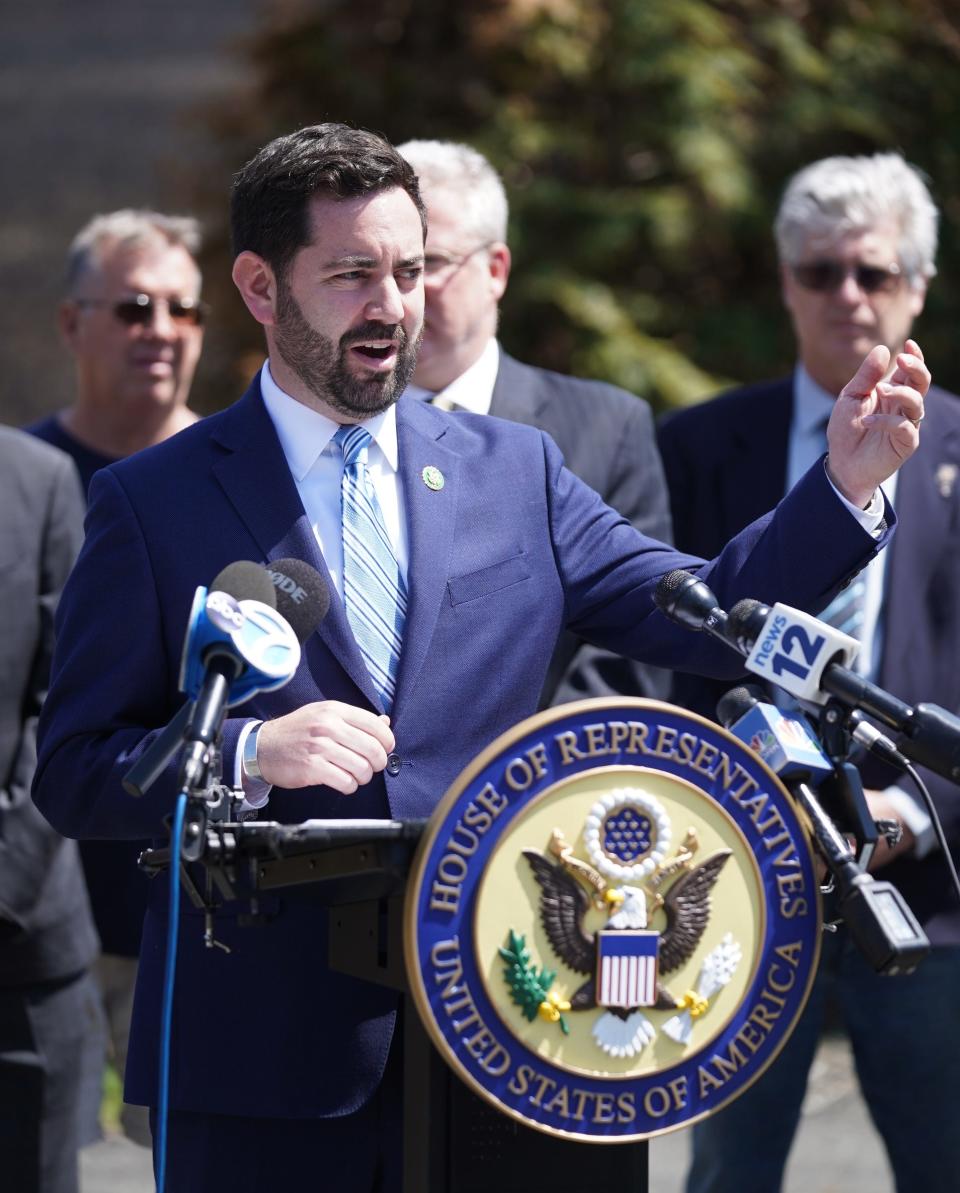This is why we can't let Taiwan become the next Ukraine | Opinion
- Oops!Something went wrong.Please try again later.
In combating communism and promoting democracy, Ronald Reagan employed the doctrine of “peace through strength” — a policy that helped end the Cold War, bring about the collapse of the Soviet Union and the Berlin Wall, and put America on the path to global superiority.
Today, with military and economic threats emanating from the unholy alliance of Russia, China, North Korea and Iran, America must once again lead to preserve peace, ensure prosperity, and advance democracy.
When Vladimir Putin invaded Ukraine in February 2022, he did not anticipate the unified economic and military response of the United States and our NATO allies or the resolved determination of the Ukrainian people. The consequences for this unjust war have been severe, with crippling economic sanctions and a depleted and demoralized Russian military.
But Russian aggression didn’t begin in 2022 and the invasion was hardly a surprise. Had America and our allies acted sooner to arm Ukraine and firmly pushed back against Russia, Vladimir Putin would have thought twice about such an invasion.
We cannot allow history to repeat itself, especially in dealing with the threats and challenges emerging out of the Indo-Pacific.

China continues to ramp up global economic coercion, aggression in the Strait of Taiwan, and espionage efforts against the U.S. and our allies. Meanwhile, North Korea threatens U.S. and international security by engaging in arms deals with bad actors and testing missiles within range of nearby countries. These provocations create a unique opportunity for America to strengthen our relationship with Japan, South Korea, the Philippines, Australia, Thailand, India, and Taiwan — an opportunity we cannot afford to squander.
That is why I, along with House Foreign Affairs Committee Chairman Michael McCaul, R-Texas, and a bipartisan group of colleagues, recently traveled to the Indo-Pacific on a 10-day tour of Japan, South Korea, Taiwan, Hawaii, and Guam.
After meeting with heads of state, foreign ministers, defense officials, and legislators, as well as our own military leaders in the Indo-Pacific Command, the 7th Fleet, and the DMZ, it is abundantly clear that the United States and our allies in the region must implement a clear strategy of deterrence against China and North Korea and create stronger economic and trade relations amongst ourselves — in other words we must implement a policy of peace through strength.
In recent months, Japan announced plans to double the size of its military and increase defense spending to over 2% of GDP; South Korea increased defense capabilities and announced an expanded role in the Indo-Pacific region; the Philippines signed a maritime framework; and Australia agreed to expand defense cooperation with the United States.
These actions by our allies are no accident, and they must be the beginning of greater cooperation and hopefully the framework for a NATO-like military alliance in the Indo-Pacific. It’s the only way to effectively deter North Korea’s and China’s blatant military aggression.
As with Ukraine, some Americans may wonder why it is important for the United States to be involved in these conflicts. The answer is simple: Those who fail to learn from history are doomed to repeat it. Make no mistake, freedom and democracy are worth fighting for and a prosperous America requires it.
With over 60% of global trade navigating through the Strait of Taiwan and over 90% of the world's semiconductors being manufactured in Taiwan, any military invasion or blockade in the region would grind America’s economy to a halt and have severe ramifications worldwide. It is in our national interest to ensure that never happens.
During our meeting with Taiwanese President Tsai Ing-wen, which came two days after her historic meeting with Speaker Kevin McCarthy and a bipartisan congressional delegation in California, she outlined a clear course of action — increased defense training and cooperation, delivery of critical weapons systems, and a unified coalition in the Indo-Pacific to deliver a clear and unambiguous message to China and any other would-be bad actors: don’t even think about it.
China is our greatest geopolitical adversary and is the single most unifying issue across America. In the 118th Congress we have already seen the passage of significant bipartisan legislation on China, with more to come.
The time to act is now. America must lead with strength, boldness, and courage. With an eye towards peace and prosperity for all, our Indo-Pacific allies are ready and willing to unite.
Rep. Mike Lawler represents New York's 17th Congressional District, which includes Rockland County, Putnam County and portions of Westchester and Dutchess counties.

This article originally appeared on Rockland/Westchester Journal News: Taiwan China conflict must be avoided

